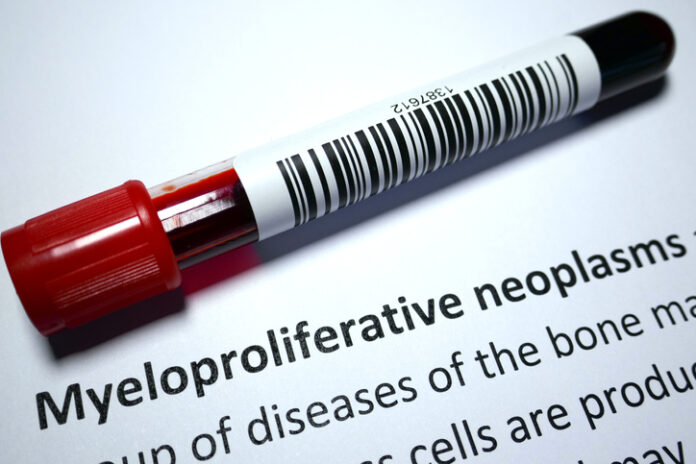
Research led by the Wellcome Sanger Institute and the University of Cambridge suggests that more than one kind of genetic mutation is needed to develop a rare blood cancer known as a myeloproliferative neoplasm (MPN).
MPNs are a group of rare blood cancers that involve over production of mature blood cells and around 20,000 people in the U.S. are diagnosed with this kind of cancer each year. Random mutations in genes such as JAK2 have previously been linked to MPNs, but JAK2 is commonly mutated in the general population, whereas these blood cancers are rare.
The new study, published in Nature Genetics, shows that inherited genetic variation linked to blood cell formation and regulation can influence whether or not people with random mutations in genes such as JAK2 will go on to develop this kind of cancer.
In the study, Nicole Soranzo, co-lead author and group leader at the Sanger Institute, and colleagues searched for individuals in the UK Biobank who were carriers of a specific JAK2 mutation that has been linked to MPN development.
They found 540 individuals with the mutation in the cohort and 423 with MPN. Overall, 72 people already diagnosed with a MPN blood cancer also had the JAK2 mutation.
To assess factors linked to development of MPNs in those with JAK2 mutations the team created polygenic risk scores for inherited genetic variants linked to many different aspects of blood cell formation and regulation in people with and without MPNs.
They discovered that inherited genetic variants linked to higher monocyte white blood cell levels and platelet counts seemed to increase the risk of going on the develop MPN in those with random JAK2 mutations. Whereas other inherited blood traits linked to low platelet counts reduced the risk of MPN.
“There has been increasing realization that human diseases have complex causes involving a combination of common and rare inherited genetic variants with different severity,” said Soranzo in a press statement.
“Previously, we have shown that variation in blood cell parameters and function has complex genetic variability by highlighting thousands of genetic changes that affect different gene functions. Here, we show for the first time that common variants in these genes also affect blood cancers, independent of causative somatic mutations.”
While having a JAK2 mutation, or a similar random somatic mutation, makes it more likely for someone to develop a type of MPN blood cancer. The researchers believe that having a particular combination of inherited genetic variants could also trigger MPN in some cases.











